The World Cup comes to Aigburth
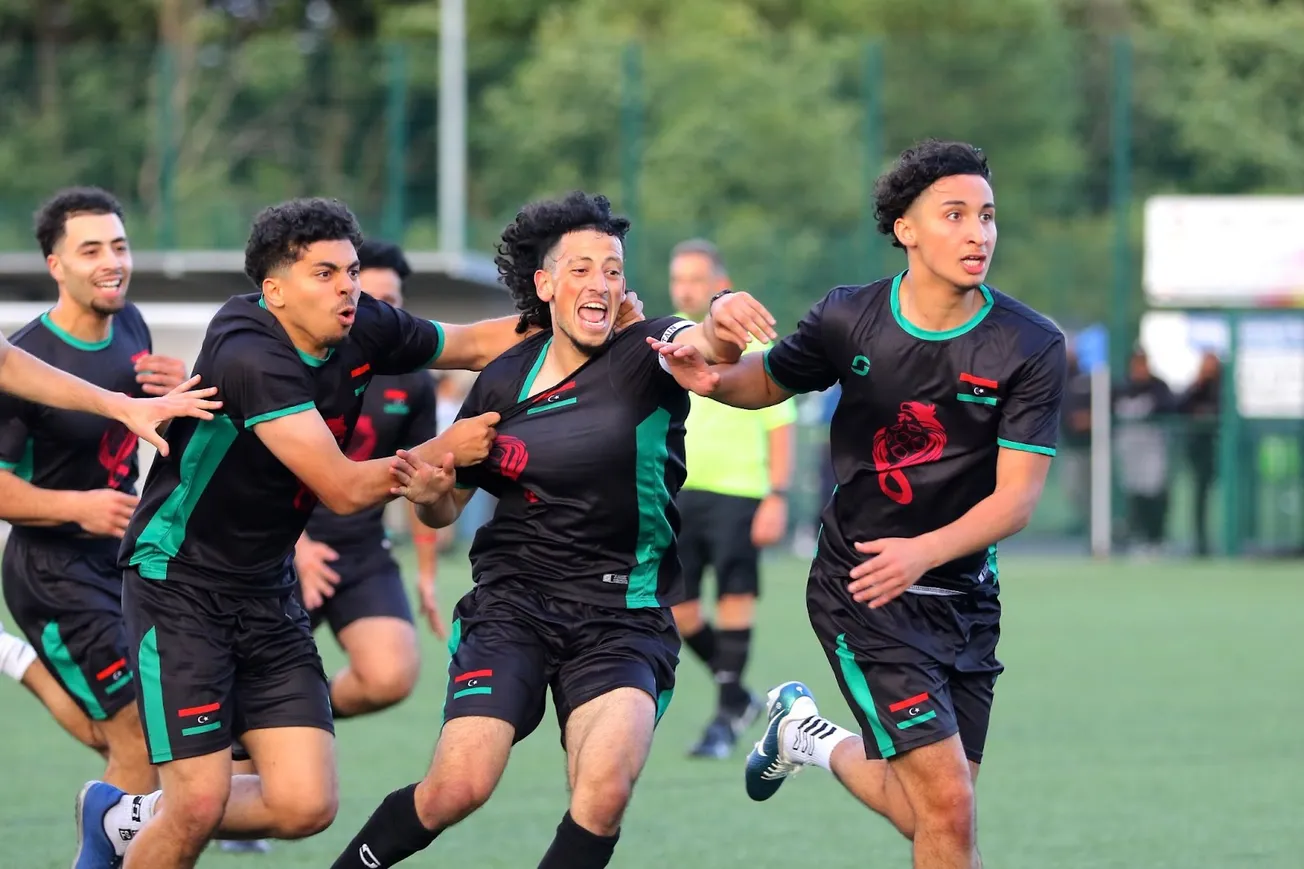
'What you have to remember is, ultimately, we can all play for England'
The Leisure United gym on Otterspool Drive might seem an odd place to host an international football tournament. Security is minimal. The cafe menu, meagre. The pitches in use are half-size and made of that sports-centre-specific astroturf filled with those black rubbery bits that get in your shoes and burst from the ground when the football is bounced about it. Parking is limited. And yet this is the chosen venue for the semi-finals, and indeed every match, of The World in One City tournament.
Now in its fourth year, the tournament functions as a tiny, localised World Cup: players of different nationalities and backgrounds, but who ultimately all live or grew up in Liverpool (or thereabouts) go head to head for the grand prize of a World Cup replica trophy and personal bragging rights. Today is the day of the semi-finals: Libya vs Somalia.
I’ve never been a massive football fan, but I’m enough of a fan of unwarranted degrees of competitiveness to enjoy the odd amateur game. My only experiences with professional matches involve going to Parkhead with a high school friend — he and his dad had season tickets and I’d get to come along on the off chance his dad couldn’t go. I went to these matches more out of an inexplicable dislike for Rangers than any real love for the game, a dislike I borrowed from my schoolmates, born and bred Glaswegians, some of them from Irish families who had scorned the Protestants since the Reformation.
My family, on the other hand, had only immigrated to the UK when I was four, and we weren’t even Christians let alone Catholics. My heritage played no part in my relationship with football. When I briefly took football lessons at primary school, my coach could never quite get my name right — I don’t remember much from the sessions, but my dad still shouts “Score a goal Ofeeya” at me in a shoddy Scottish accent to this day. The football culture I knew was one that would happily accommodate anyone of any heritage, as long as you were quiet about it and proved your Glaswegian-ness by singing football chants about either wanting to kill the pope or unquestionably supporting the IRA and everything they’ve ever done.
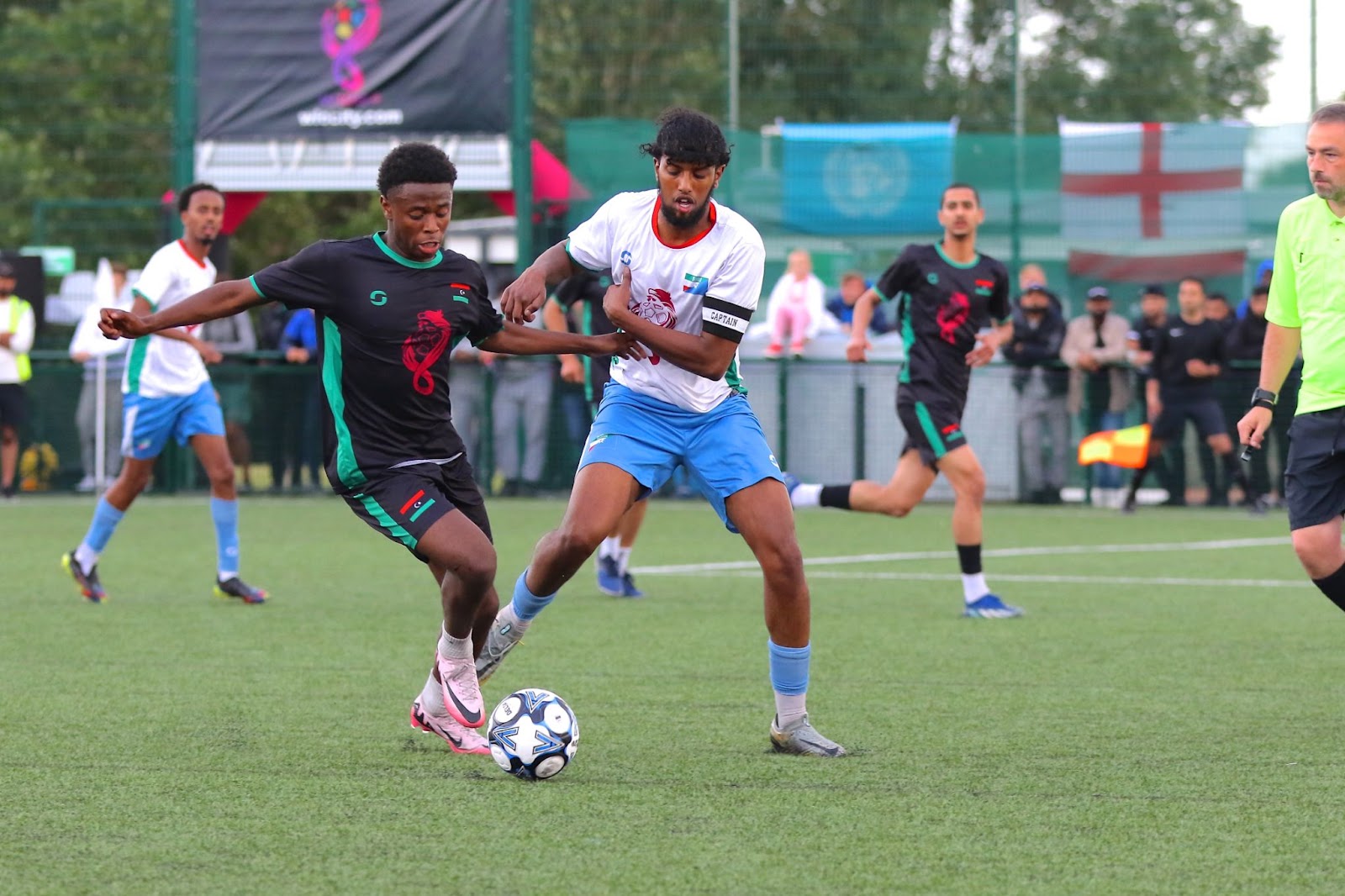
When I arrive at Leisure United gym in Aigburth, I am confronted with a wholly different form of football fandom, a world and a half away from the inflated pride and spitting vitriol of Old Firm matches. The pitchside is busy, and I struggle to see the players over the slender barrier of people taller than me, but the atmosphere is conspicuously calm. Here and there is a flag, but they’re scattered about the railings with no sense of clannishness. The exception to this is in one corner, where 20-odd Libya fans have crowded together, wielding banners and drums and megaphones, and one young boy a bubble-firing gun.
There is a surprising and somewhat comforting absence of alcohol and a considerably less comforting but equally surprising absence of pies. Between all this (the crowds, the banners, the lack of pie) is Imad Ali, a tallish man dressed in astroturf-rubber-black sportswear, who weaves between the fans with the calm friendliness of someone who knows everybody, but doesn’t have the time to speak to them right now. Despite this, and with a classic journalistic lack of tact, I corner him for a chat.
Imad founded and co-created The World in One City back in 2021. “To be honest with you,” he says, “it was just an idea that came about.” He credits the creation of the competition to two intermeshing aspects of his personality: his innate social butterfly-dom and, of course, his eternal love for the beautiful game. “I’ve played football for as long as I can remember,” he explains. “It’s my one true passion. Most of the things I’ve learnt about life are through football.”
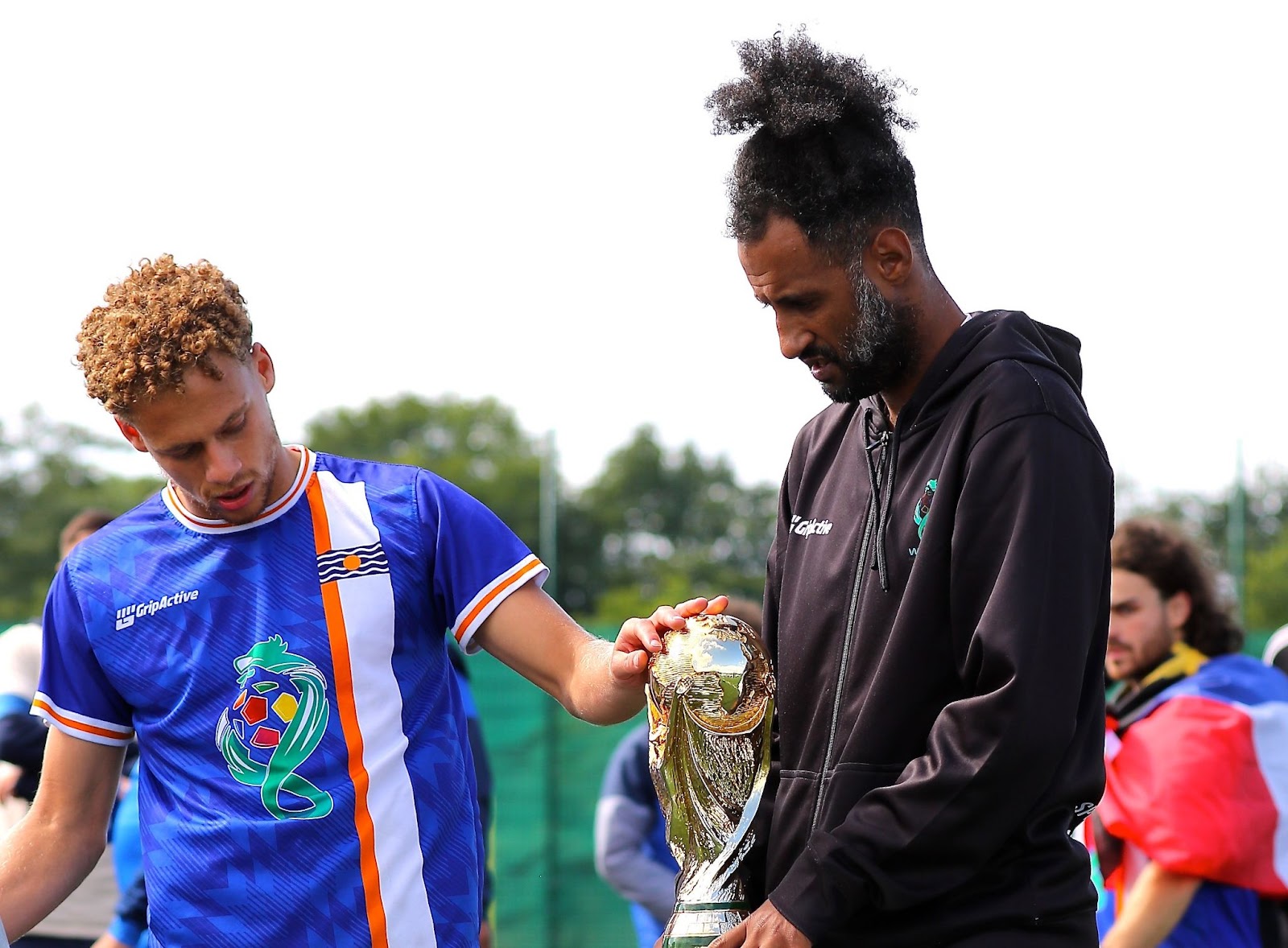
Imad’s particular interest stretches well beyond the game itself to the people who play it, a curiosity about the interplay between the pitch and a player’s personality. “You’ve got your own identity on the pitch,” he explains. “You can be a very shy person in real life, and then on the football pitch you think you’re the hardest person on the planet. It’s like a parallel universe, I was always fascinated by it.”
Imad’s family are from Yemen, his parents having moved to Liverpool in their childhoods, and for a long time, they were unfamiliar with the phenomenon of grassroots football. When he eventually discovered it in his childhood, it was a dream come true. “I realised I can copy what people are doing on the telly. I can go and put a kit on and play on grass and put a ball in the net. That was absolutely unbelievable.” From that point on his ambitions as a grassroots footballer grew. “I wanted to be a striker for Yemen,” he says, a desire rooted in doing his local community proud. “I wanted to do the national anthem and wear my red kit and for my dad and his friends to come watch me play. But to do that, I needed another sixteen nations to want the same thing.”
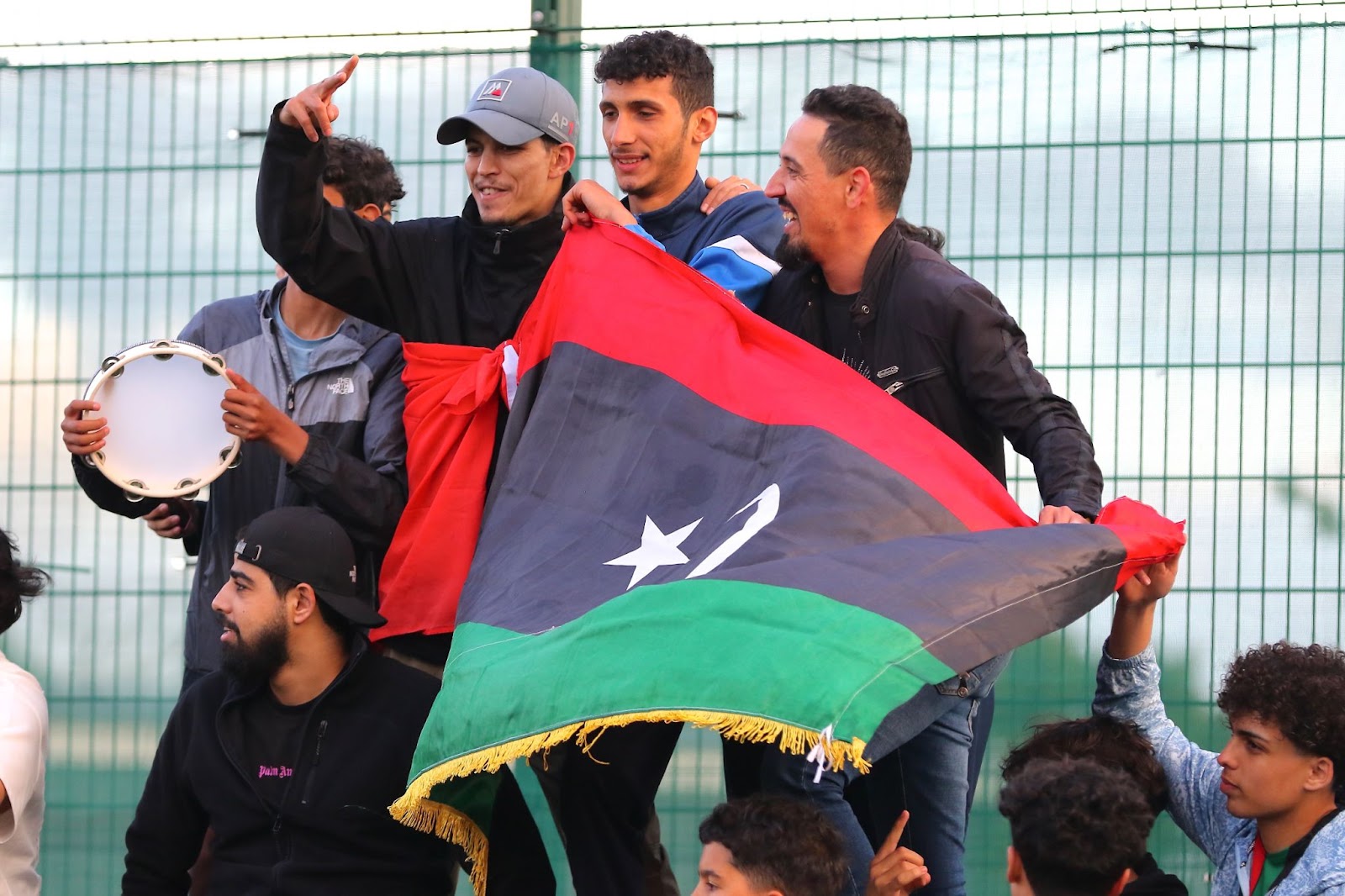
The World in One City requires you to register 20 players per nation. By 2021, Imad was regularly playing football with members of various cultural communities in Liverpool and had a large social pool from which to recruit players. “Maybe I know 11 Jamaican players,” he explains “and then one of them has a cousin who’s good at football, or his next-door neighbour’s Jamaican. Before you know it, you’ve got a 20-man squad for each team.”
Some teams were harder to assemble than others, and Imad was surprised by the level of participation from the Yemenis. “The area I reside in, the community… getting them to pose for a photograph is hard enough,” he explains, “so to get them to all come out and do the national anthems in front of all their peers and that, it was hard. But they all bought into it.”
One thing I haven’t quite got to the bottom of, however, is how they recruit for the England team. “If we find a player that’s white but, say, one-tenth Yemeni, he’s gonna play for Yemen,” he explains, “because it’s harder to find people, and we have to keep the standard good.” But by the same token, players from various cultural backgrounds end up playing for the England team, if that’s where they happen to be needed. “What you have to remember is, ultimately, we could all play for England,” he says. This seems to me to be the most crucial aspect of the tournament. Rather than being asked to forgo their cultural heritage in favour of embracing Scouse identity, or vice versa, the players get to simultaneously be both.
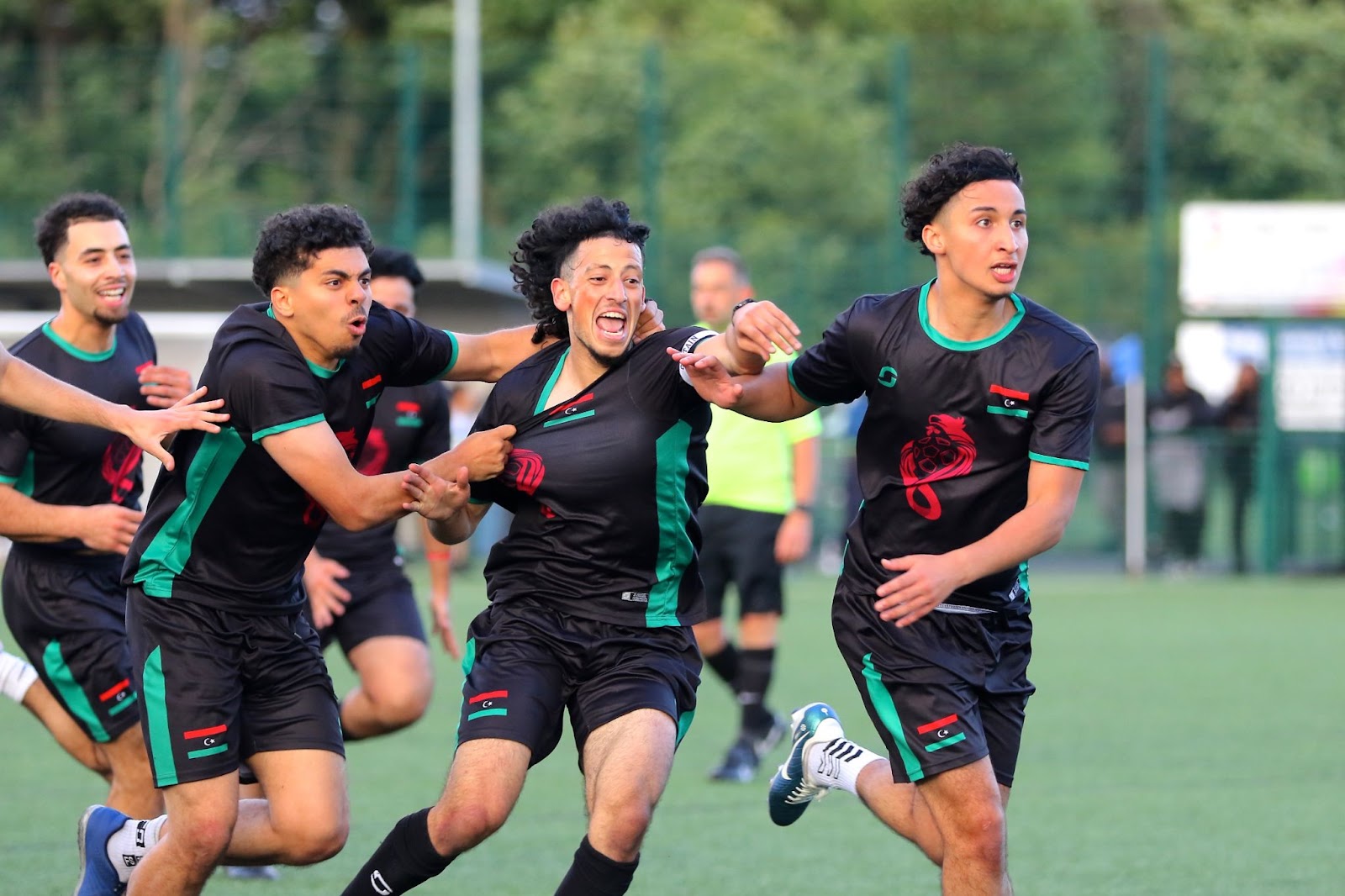
Back on the pitch, I can’t entirely see what’s going on. Judging from the occasional bursts of zealous cheers and drumming from the Libya Ultras, I gather that they’re far in the lead, but this later transpires not to be true – no one has scored yet, and it turns out that Libya fans just start cheering when the ball gets near the net, or someone falls over. Their chants range from the elaborate, to the less elaborate, to the word ‘Libya’ over and over again, to rhythmic screaming, and one of their songs which is sung to the tune of the ‘7 Nation Army’ bass line involves Somali-related slander.
It’s all standard football fan behaviour really, made peculiar only by the fact that the Somali fans afford them no retaliation whatsoever, preferring to survey the match with an attitude of respectful stoicism. At times I find gaps by the railing through which I can properly watch the action, but my innately feminine fear of a football to the face makes me abandon these rare spots quickly. Now and then I try to speak to a fan, to find out why they’re here, what the tournament means to them, what it means to Liverpool, but they’re all too invested in watching the action to notice me speaking to them.
And so I will have to make do with answering these questions myself based on anecdotal evidence. Why are they here? From what I can gather, this differs between the teams. The Libya fans seem to be here because they’re Libyan, because they’re part of the community, and their community is competing in something and doing rather well at it. At one point I hear a scouse lad in the crowd refer to the Libyan team as dark horses (Really: “These guys are the dark horses!”). Somali fans, on the other hand, appear to be here because they either like football very much or are related to one of the players. This could have something to do with the fact that the Somali team covers Somaliland too, and may not have as cohesive a singular identity. What does the tournament mean to both teams? An obvious answer would be a celebration of culture — though the winning, as is often the case with football, seems to matter a whole lot more than the taking part.
What does the tournament mean to Liverpool? All British cities are multicultural these days whether they like it or not. But to properly embrace this, a city needs to be able to hold the duality of immigrants’ identities – to be able to say at once that they are from that city, and from somewhere else, and both can be celebrated. The World In One City does exactly this, but it does so in a delicate way, where the communities have created their own teams, their own space to celebrate their dual identities, and their own unique ways of celebrating. Speaking of which, my train of thought is interrupted by nearly every single Libya fan storming the pitch, cheering wildly. I really can’t say for certain, but I’m pretty sure this time they must have scored.

Comments
Latest
Is Liverpool resting on its laurels?
From Hoylake to St Helens, community cinema is making a comeback
Millions of tonnes of greenhouse gas to be piped under Liverpool Bay
The unexpected auction: A London fund manager is selling Merseyside homes from under their tenants
The World Cup comes to Aigburth
'What you have to remember is, ultimately, we can all play for England'